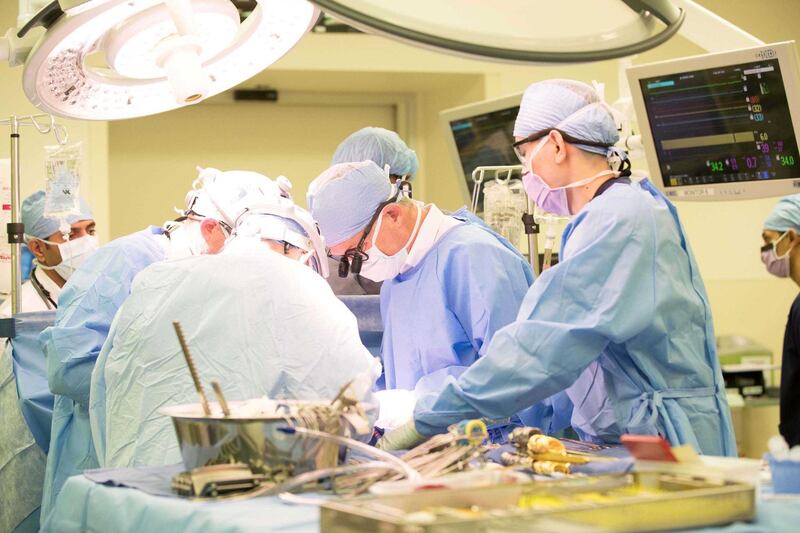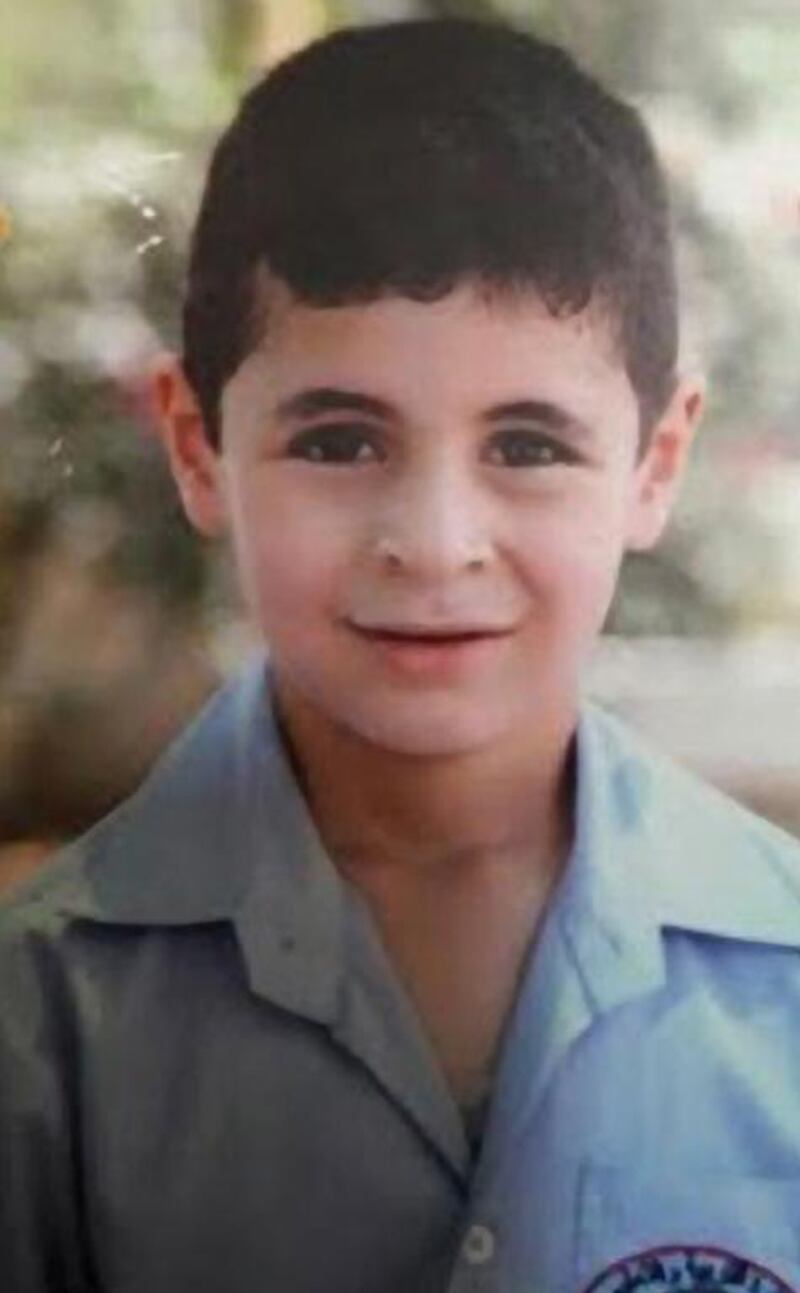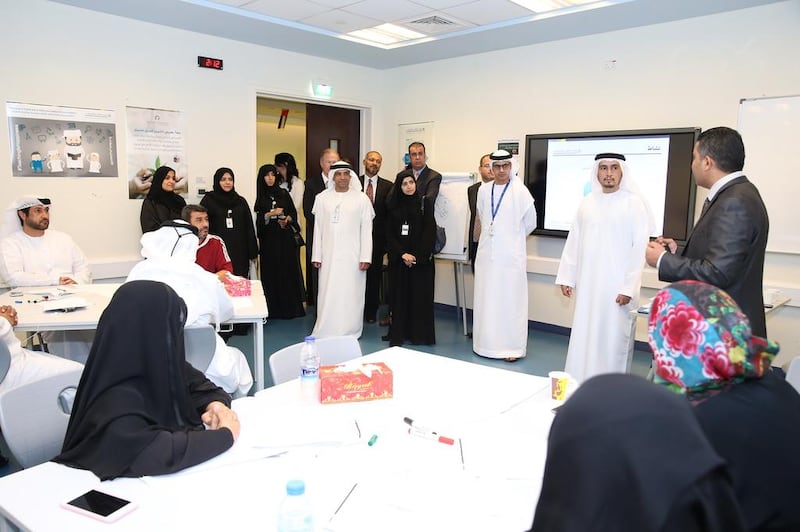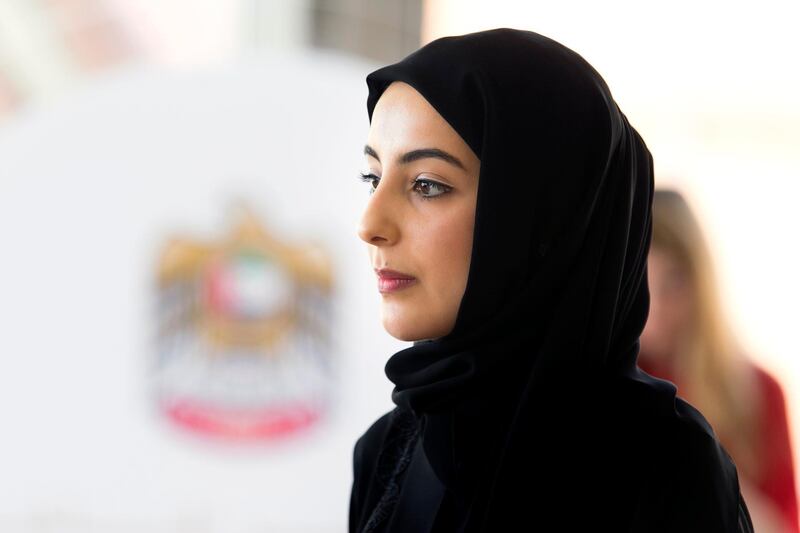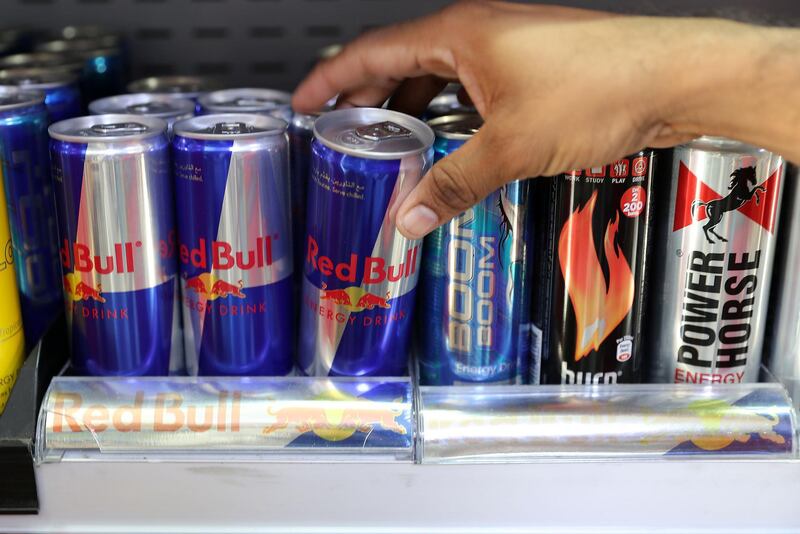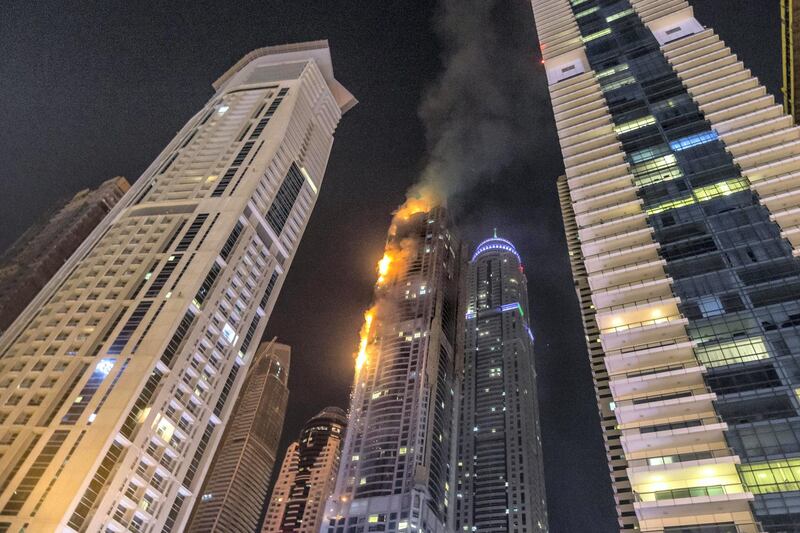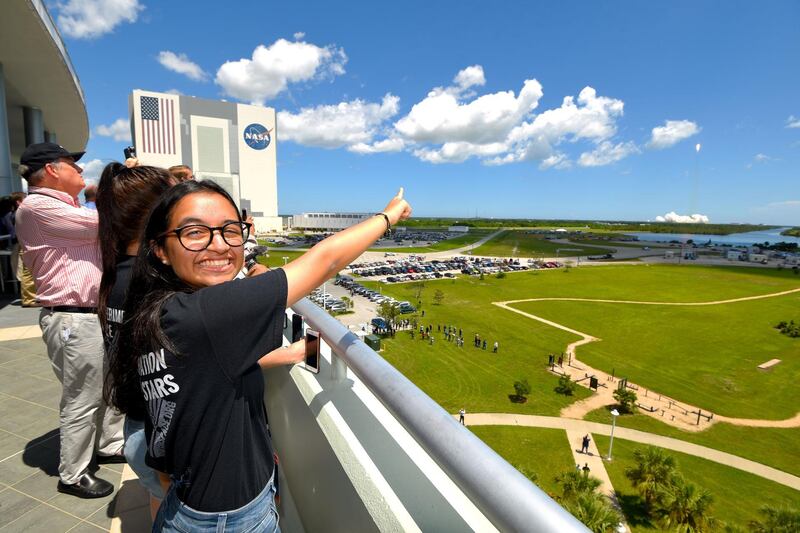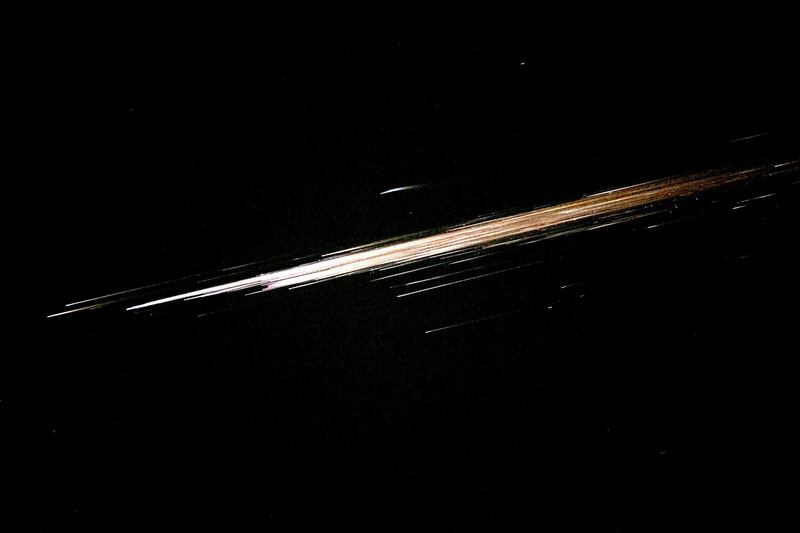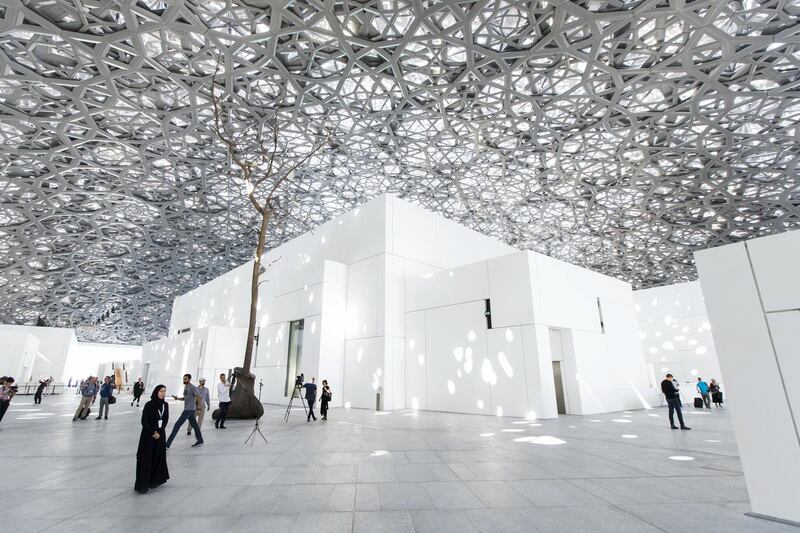Stunning. Mesmerising. Iconic. These are just some of the words visitors used to describe the much-anticipated and spectacular opening of the first universal museum of the Arab world, Louvre Abu Dhabi on Saadiyat Island.
A masterpiece by architect Jean Nouvel 10 years in the making, Louvre Abu Dhabi welcomed its first admission-paying guests on November 11, and many arrived as much for the awe-inspiring and uniquely Emirati dome and its otherworldly ‘rain of light’ as the remarkable artwork inside.
Less than a month after the museum’s launch, Louvre Abu Dhabi announced it will add the most expensive painting ever sold, Salvator Mundi by Leonardo da Vinci, to its collection after the artwork was acquired for US$450 million (Dh1.65 billion) by the government.
[ Fire in the sky ]
It was like a scene out of an apocalyptic sci-fi movie – a large fireball was seen streaking across the night sky, falling toward the earth below. But this particular space drama played out in real life over the UAE skies. Hundreds, if not thousands, of people took to social media just after 7.30pm on Monday, October 16 to report the fire in the sky and attempt to solve its mystery. Within hours, some official government sources reported it to be a meteor. But 24 hours later, after experts had had more time to examine witness videos, it was determined to have likely been debris from a Russian space rocket re-entering the earth’s atmosphere.
[ Genes in Space ]
She went from being a plucky teenage contestant in the national UAE Genes in Space competition to inspiring a nation with her science experiment and audacious dream of travelling to Mars. On Monday, August 14, the first of Emirati teenager Alia Al Mansoori’s space goals finally came true as she witnessed her winning experiment loaded onto the Falcon 9 rocket and blasted into space from the Kennedy Space Centre to be tested on the International Space Station (ISS). More space news would make headlines and spark the public imagination in December when Sheikh Mohammed bin Rashid, the Vice President, Prime Minister and Ruler of Dubai, urged young Emiratis to apply to join the country’s first UAE astronaut programme. Four young Emirati astronauts will be selected to join the ISS on the first UAE space mission.
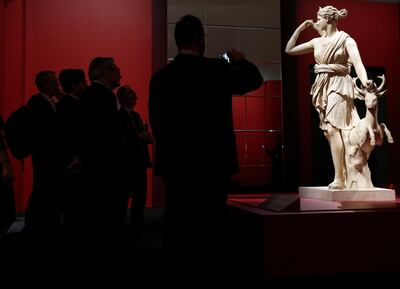
[ Torch Tower fire ]
When sirens rang at the Torch Tower in Dubai Marina warning of a potential fire just after 1am Friday, August 4, some residents dismissed it as a false alarm. A destructive blaze at one of the world’s tallest residential buildings couldn’t possibly break out twice within 30 months, some thought. Yet, that is exactly what happened. Fire erupted on the 26th floor of the 86-storey building sending burning debris falling to the ground and temporarily displacing hundreds of residents. For some, the incident was déjà vu. In 2015, the Torch Tower made international headlines when a fire broke out on the 51st floor and quickly raced up to the 79th floor.
Dubai Civil Defence reported no casualties in the fires. Officials later ruled the fire in 2017 was ignited by a recklessly tossed cigarette.
[ Sin tax ]
For the first time in UAE’s history, a law on excise taxes for tobacco products and energy and fizzy drinks took effect on October 1, effectively doubling the price of tobacco and energy drinks and increasing the price of fizzy drinks by 50 per cent. The “sin tax,” as it is colloquially referred to, will help diversify the Government’s revenue streams while discouraging bad habits, officials said. The UAE is the second GCC country to introduce excise tax after Saudi Arabia, which began collecting the levy in June. More countries are expected to follow suit in 2018.
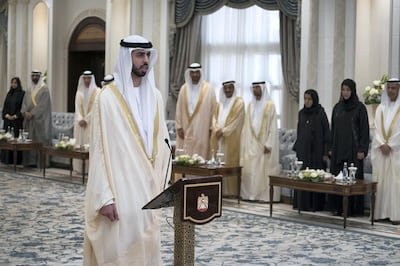
When the new cabinet was announced on October 19, the UAE achieved a number of milestones. For one, it became the first country to appoint a Minister of State for artificial intelligence. Omar bin Sultan Al Olama, 27, is charged with “enhancing government performance by investing in the latest technologies and tools of artificial intelligence and applying them in various sectors.”
Nine of the 31 ministerial positions are now held by women, making the Emirates more gender equal than Donald Trump’s cabinet, which has four. It also includes the world’s youngest minister, Shamma Al Mazrui, who was just 22 years old when she was first appointed in 2016.
The pace of change within the country’s public and private schools continued to accelerate with the introduction of moral education, the unification of the public education system and the roll-out of the national teacher license, which all began in September. The new weekly moral education classes are meant to teach young people about civics, ethics and moral integrity. The national teacher licensing system, called the Teacher and Educational Leadership Standards (TELS UAE), is still in its early stages as it is slowly being launched across the country after a successful pilot concluded in the spring. The goal is to elevate the quality of education by ensuring that all teachers and principals working in the UAE hold a professional teaching license by 2021. Public schools across all seven emirates also began following a new common curriculum, the Emirati School Model, in a major shakeup announced by the Ministry of Education. In the meantime, the Abu Dhabi Education Council changed its name to the Abu Dhabi Department of Education and Knowledge.
A landmark new labour law issued by President Sheikh Khalifa in September guaranteed the rights of domestic workers by spelling out legal working hours, paid sick leave and legislating a day off each week. The law covers 19 service work occupations, including sailors, guards, parking valet staff, farmers, gardeners, domestic workers, cooks and nannies, as well as private trainers, nurses and drivers. Employers in violation of the legislation can be fined up to Dh100,000. The law also bars recruitment agencies from requesting or accepting commission for a worker or mediator.
____________
Read more:
[ UAE news in review: the most popular web stories of 2017 ]
Year in review: UAE embraces artificial intelligence
____________
[ Heart transplant ]
Surgeons at Cleveland Clinic Abu Dhabi performed the country's first full heart transplant on December 5. The successful surgery on an Emirati patient was described by officials as a landmark moment for transplant medicine in the UAE, and came just months after a change of law earlier this year legalised transplants with organs from dead donors. The procedure was performed by a team of four surgeons on a 38-year-old man who had end-stage heart failure. Ninety minutes after the heart was harvested and immediately after transplantation, it began beating again. The patient is currently recovering from the surgery.
“The UAE has taken important strides in introducing new legislation to support transplant operations in 2017, and we are very proud that Cleveland Clinic Abu Dhabi is the first and only multi-organ transplant facility in the country," said Dr. Johannes Bonatti, chief of the Heart and Vascular Institute at the CCAD.
[ Execution for child rapist ]
Nedal Issa Abdullah, a 50-year-old Jordanian convicted of raping and killing eight-year-old Obaida Al Aqrabawi, was executed by firing squad at 8am Thursday, November 23.
Obaida was kidnapped by Abdullah, an acquaintance of the boy’s family, in 2016 while playing outside his father’s garage in Sharjah’s industrial area. His body was found two days later on Academic City Road in Al Warqa. Obaida's father, Ibrahim Al Aqrabawi, and two of Obaida's uncles were present to witness the execution. “We stayed until I made sure that he was dead," said Mr Al Aqrabawi. “The fire inside our chests is now cooler.”
